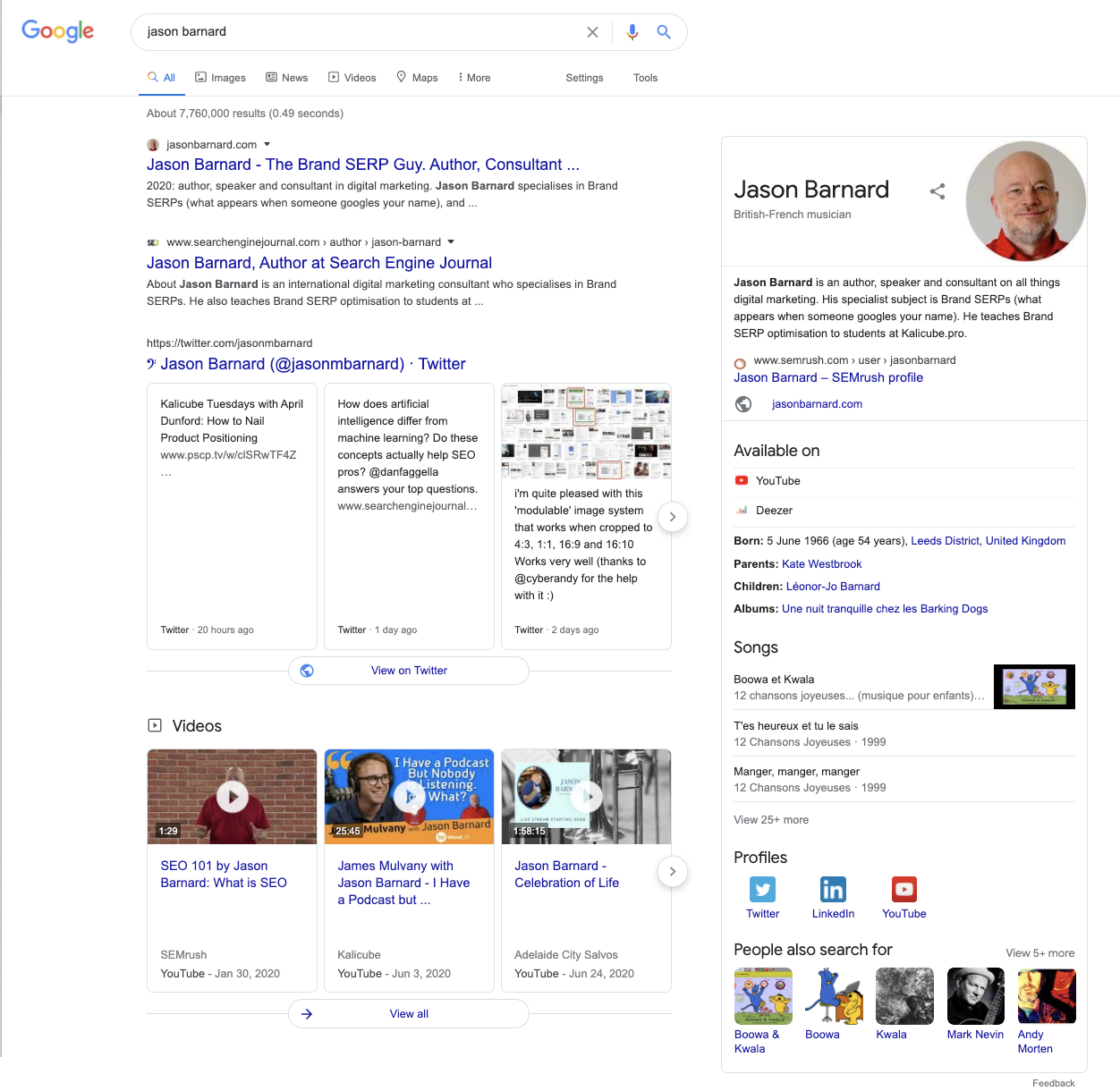Losing Wikipedia Meant Losing the Google Knowledge Panel

Extract from: 7 Marketing Disasters That Turned Out to Be Precious Lessons, published on Search Engine Journal November 5, 2020 (Svetlana Shchehel)
Article on Search Engine Journal bringing together expert opinions on 7 marketing disasters that turned out to be precious lessons of a six part series.
SEO and marketing pros have their own professional horror stories to tell. Here are a few, and the lessons they learned from the experience.
Here is Jason Barnard’s experience:
Wikipedia Knowledge Graph Horror
Jason Barnard, The Brand SERP Guy®, Kalicube®
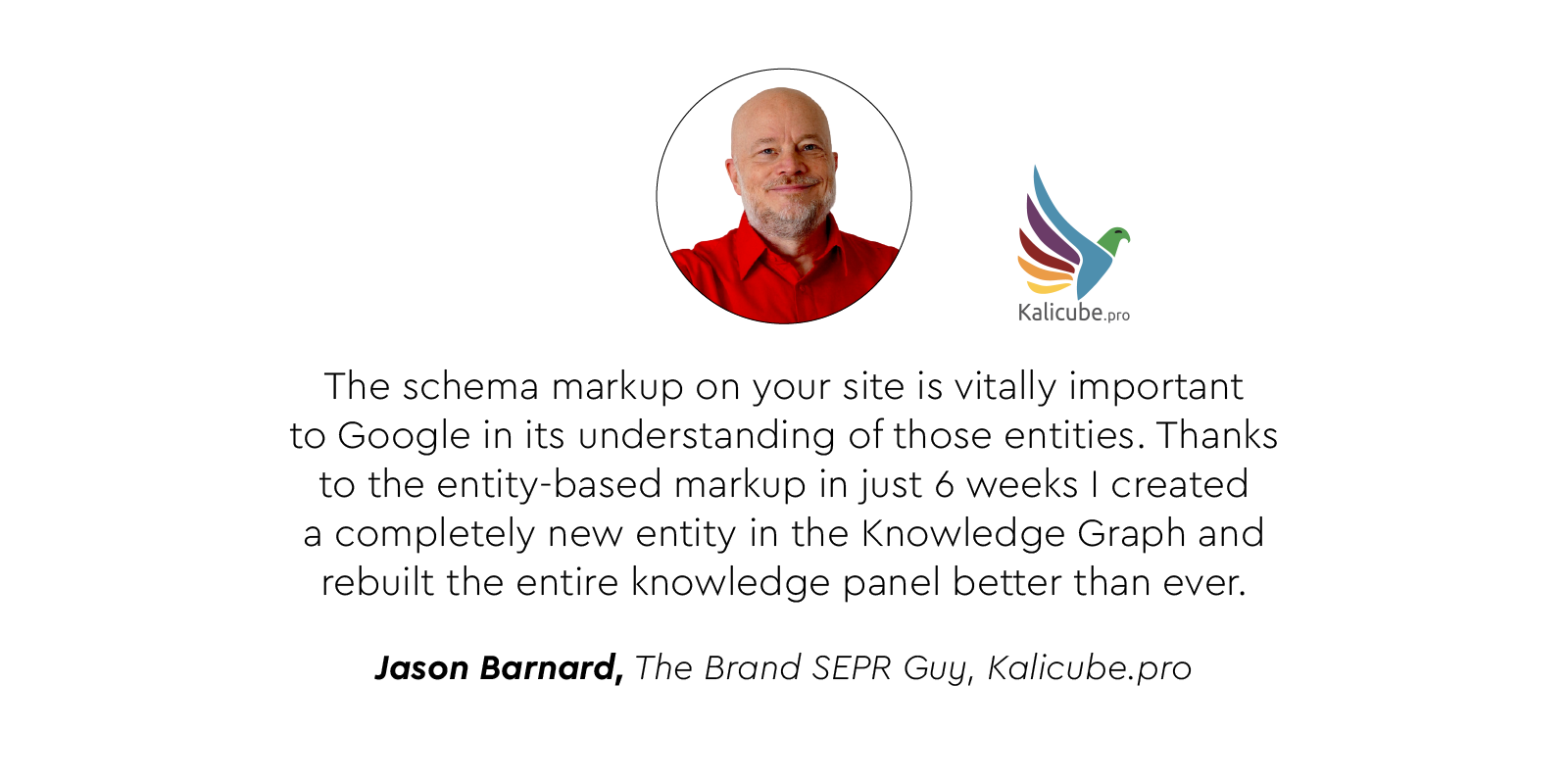
A warning had been on the Wikipedia article for two years.
Then early July 2020, a new warning appeared.
Two weeks later, the Wikipedia article about me had been deleted by the administrators.
Within a week, my entity had disappeared from Google’s Knowledge Graph and the knowledge panel on my personal Brand SERP had gone.
A major nightmare for someone who calls himself The Brand SERP Guy®.
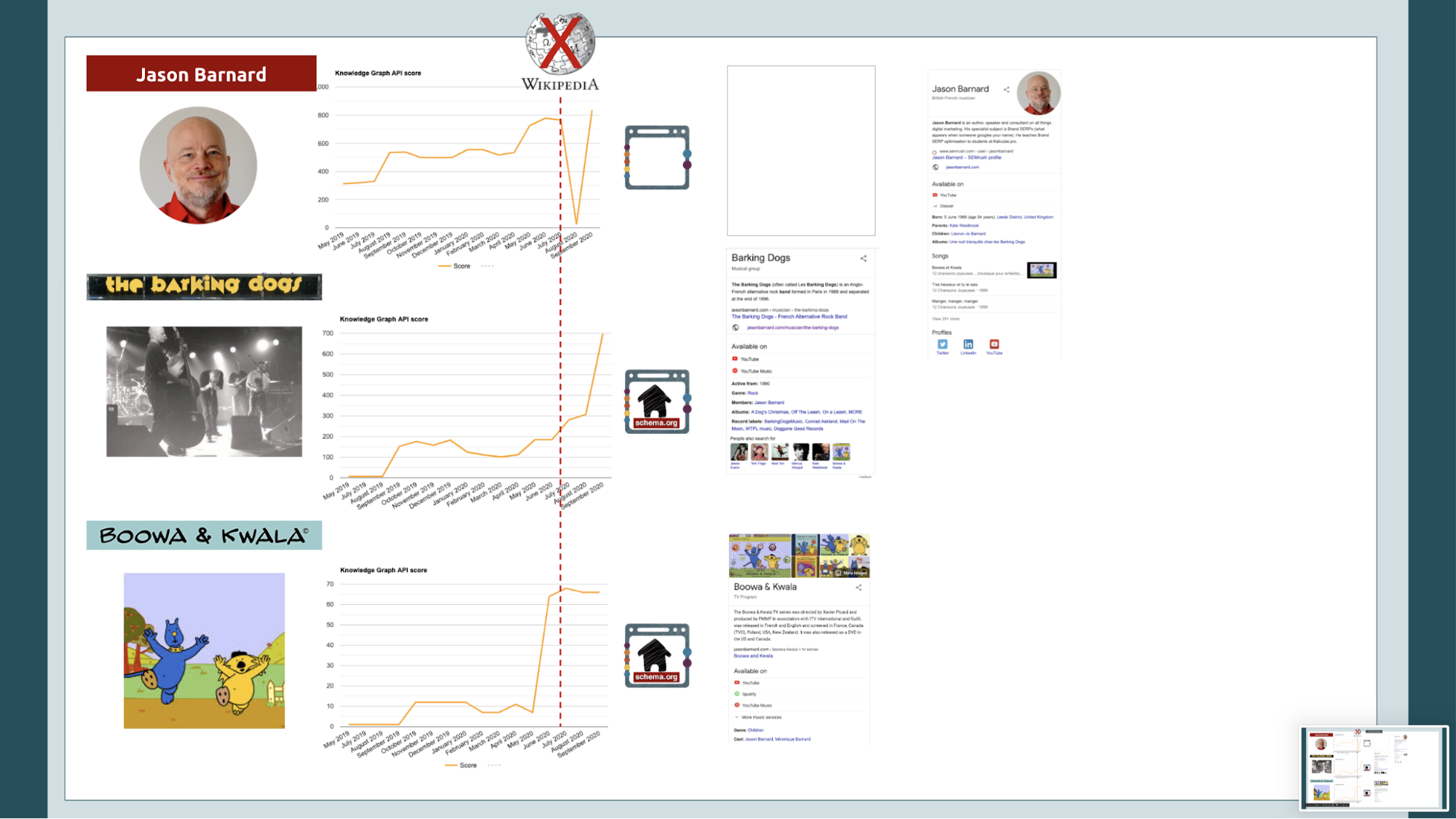
Worse, a week later, the Wikipedia article about my folk-punk band from the ’90s was gone.
CallRail turns data into action.
Our leads-focused marketing and analytics platform provides you with the data you need to turn insights into action. Claim your 14-day free trial today.
Two days later, the article about my TV series from the ’90s was gone, too.
Seems someone at Wikipedia had it in for me.
In fact, truth be told, it was my own fault.
In the interests of experimenting to see how much I could “feed” Google’s Knowledge Graph and control the knowledge panel on my personal Brand SERP, and those of my music group and TV series, I had (over) edited all three Wikipedia articles.
Which is against the rules.
So what happened?
Read on, because this horror story actually has a redemptive ending.
I rebuilt it all, took control of the entities, learned a lot about knowledge panels, and got some amazing insights into how the Knowledge Graph functions.
Entity: Jason Barnard
I panicked when the Wikipedia page was deleted and moved the structured data about me on my site from the home page to a dedicated About Page.
That turned out to be a mistake.
As described, the knowledge panel disappeared and the entry in the Knowledge Graph got deleted.
Once again, my own fault.
Entity: The Barking Dogs
This is the folk-punk group I mentioned earlier.
There had previously been a mix-up of information in the knowledge panel due to the ambiguity of the name, but last year I had sorted it out using:
- Schema.org markup on my site.
- Wikipedia and Wikidata edits.
- Some changes to music listings.
- Some other tricks I learned along the way.
The deletion of the Wikipedia article brought back the mix-ups.
However, because of all the work I had done and the schema markup I had added, Google now saw my site as the main authority about the band.
That means I could now change things quite easily.
Including the description in the knowledge panel (updates take 10 minutes).
I had control.
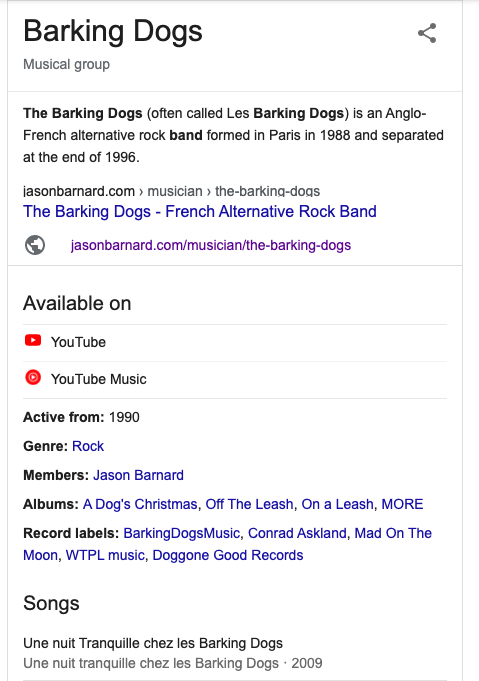
Entity: Boowa & Kwala
This is the cartoon characters and TV series I mentioned earlier.
Following the deletion of the Wikipedia article about the TV series, the Knowledge Graph entity remained in place, and the information in the knowledge panel remained as-was, except the description, which disappeared.
Three weeks later that was back, but this time from my site (it has since switched to the official site).
Once again, my site and the schema markup I provide was Google’s fallback, the second-best source of information about the entity.
Once again, the deletion of the Wikipedia page gave me control.
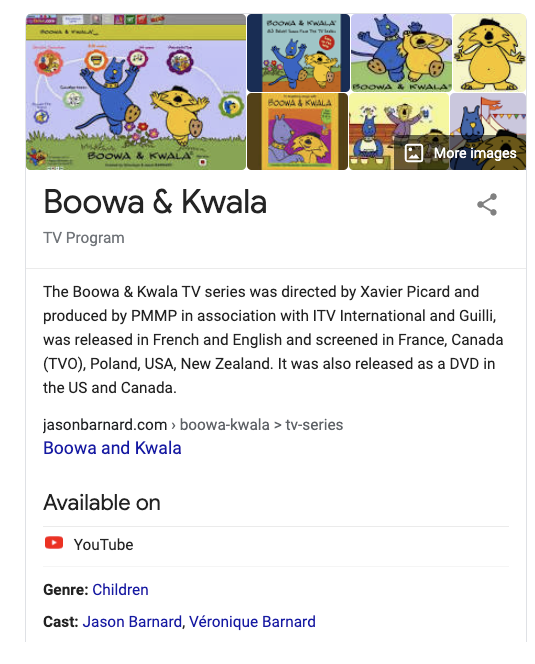
Why Such a Disaster on My Own Name, But Not on Others?
Every entity needs a “home”.
Preferably on your site.
For all the three entities, my site was the “home” - the source of information Google uses as its point of reference in the absence of a Wikipedia article.
It appears that, when a substantial piece of information about an entity such as Wikipedia disappears, that is the fallback crutch Google uses to reassure itself that the Knowledge Graph is correct.

A Lesson to Learn
The schema markup on your site that describes you and related entities is vitally important to Google in its understanding of those entities and its confidence in its understanding of those entities.
The Redemptive Ending I Promised
The good news is that by leveraging the (rather groovy) entity-based markup provided by WordLift, in just 6 weeks I created a completely new entity in the Knowledge Graph and rebuilt the entire knowledge panel better than ever.
Google now uses my site as the reference for information about me (rather than Wikipedia).
And that means what appears in the knowledge panel is now (semi) controlled by me and no longer affected by anonymous Wikipedia editors who know nothing about me, and what information is important about me.
Brilliant!
